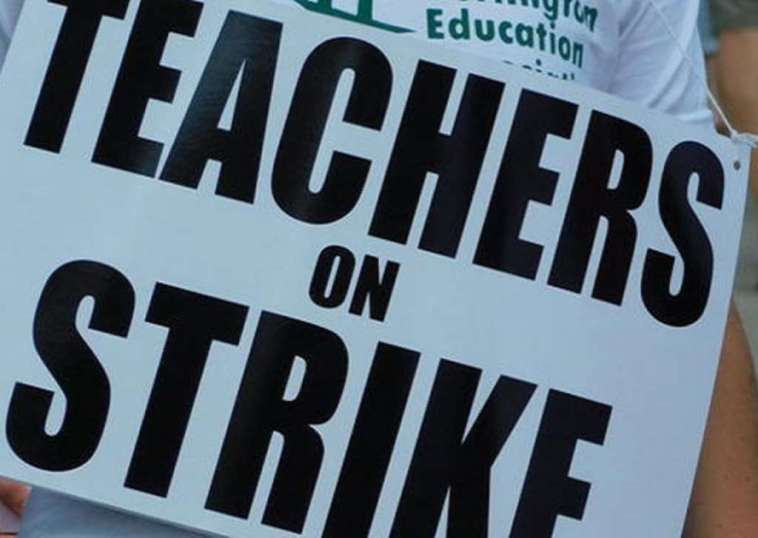The Pre-tertiary Teacher Union – GNAT, NAGRAT, and the CCT-Gh have declared a nationwide industrial action (strike) over unfulfilled promises on the part of the Government and the Fair Wages and Salaries Commission, (FWSC).
Industrial action, often in the form of strikes, has become a common occurrence in many countries as a means for workers to voice their concerns and negotiate better working conditions. In Ghana, teacher unions have been at the forefront of industrial action, demanding improved remuneration, better infrastructure, and enhanced welfare for educators.
“In recent times, we the Pre-tertiary Teacher Union – GNAT, NAGRAT, and the CCT-Gh, have raised our voices over and over again on our concerns with the employer and asked for a resolution, failure of which we hinted advising ourselves.”
Pre-tertiary Teacher Union – GNAT, NAGRAT, and the CCT-Gh
The Teacher Union indicated that there have been delays in the negotiation of its new Collective Agreement after its expiration in 2023. The Union stressed that the new Collective Agreement stands un-negotiated, and it raised the concern in a letter to the Director General of Ghana Education Service (GES). The National Labour Commission (NLC) was also informed of the delay but to no avail.
The Teacher Union further, noted that the Government and GES have failed to complete the distribution of the laptops to all teachers.
Also, it highlighted the impact of the rampant changes in the school calendar without recourse to negotiation with the Teacher Unions, which is affecting the smooth operation of the Service.
“We have also drawn the attention of the Director General of GES to the fact that the General of Ghana Education Service does not have a functional Scheme of Service for Teachers. Thus, a much cogent and appropriate one, which takes care of all the requirements in the teaching profession needs to be developed for us. We have cried over this to no avail.”
Pre-tertiary Teacher Union – GNAT, NAGRAT, and the CCT-Gh
Again, it raised concerns about the blockage of Teachers’ salaries by the Office of the Special Prosecutor without recourse to laid down procedures.
Impact of Industrial Action
One of the immediate consequences of teacher union strikes is the disruption of learning for students. During strikes, schools are forced to shut down, leaving students without access to quality education.
The longer the strike persists, the greater the negative impact on the academic progress of students. Frequent interruptions can lead to gaps in knowledge, affecting students’ overall academic performance and their preparedness for national examinations.
Additionally, when strikes occur, parents find themselves facing unexpected financial burdens. They may have to seek alternative educational options such as tutoring services, which come at a substantial cost. For families already struggling to meet basic needs, these additional expenses can be overwhelming, further exacerbating socio-economic disparities in access to education.
It is worth noting that industrial action can also affect the motivation and retention of educators. Low salaries, inadequate resources, and poor working conditions can demotivate teachers and make them more susceptible to seeking alternative employment or leaving the profession altogether. This turnover of teachers can create a shortage of qualified educators, leading to a decline in the quality of education provided.
The relationship between teacher unions and the government plays a vital role in resolving labor disputes and addressing the concerns of educators. Frequent strikes can strain this relationship, leading to a breakdown in communication and trust.
To prevent future strikes, the government and teacher unions must engage in constructive dialogue, negotiate in good faith, and find mutually beneficial solutions.
While industrial action by teacher unions in Ghana may serve as a means to address the grievances of educators, it also brings about significant consequences for the education system, students, teachers, and the nation as a whole.
Collaboration, negotiation, and investment in the education sector are crucial to ensure the provision of quality education and the overall progress of Ghana.
READ ALSO: Urgent Need for Mindful Utterances during Elections





















